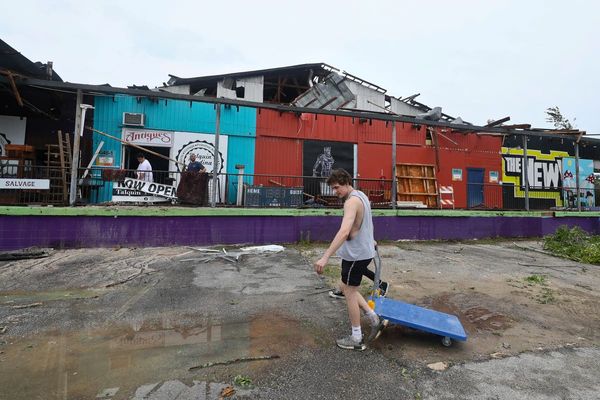
A laboratory that aims to solve health problems in the Hunter with business-minded thinking has been officially launched, but must overcome traditional bureaucratic obstacles to succeed.
"I don't underestimate the challenges," said Professor Chris Levi, the John Hunter Health and Innovation Precinct director.
"It is a new way of working in Newcastle. We've never done this before."
The Health Innovation Living Lab was launched at John Hunter Hospital on Monday as a partnership between Hunter New England Health, University of Newcastle, Hunter Medical Research Institute and the region's commercial sector.
"There's nothing like this in the country - a facility embedded in a big tertiary hospital where the university and commercial science come together with the doctors and nurses," Professor Levi said.
NSW Health Minister Ryan Park said the $2.3 million lab would "offer opportunities for researchers, students and industry to embed their work inside one of the busiest teaching hospitals in Australia".
Mr Park said the lab would focus on "digital health, sustainability in healthcare and medical technology, as well as operations and logistics".
Minister for Medical Research David Harris said the lab would "develop innovative health programs, products, and services in co-creation with clinicians, academia, students, start-ups, industry and public partners".
Work has begun on projects including a biofabrication service that constructs "advanced biological models using 3D-printing technology to plan complex surgeries".
Virtual reality technology will support clinician and student training.

The lab will be a place to collaborate and innovate to find solutions to health problems.
"To take those solutions and immediately test them in the hospital provides a rapid turnaround on whether a prototype is working," Professor Levi said.
The so-called "living laboratory" has been established in the hospital library.
"It's now revamped for innovation teams to form around clinical unmet needs," Professor Levi said.
More space for the project will be available within the NSW government's $835 million hospital redevelopment.
Asked if the lab would have the power to overcome obstacles and red tape within the health bureaucracy, Professor Levi said "I'm at the top table within the health district".
"I have very strong support from the university and HMRI and a very engaged business community. So I think we can.
"It's always a challenge in Newcastle. We're always in the shadow of Sydney. But when the state is sinking in close to a billion dollars in infrastructure, they will want to see us succeed in turning the precinct into more than just a hospital."
Professor Levi said the "hospital is critical", but the government "will want to see some return on investment".
"That is, jobs and growth in this region."
Hunter New England Health chief executive Tracey McCosker said the lab "provides an opportunity for clinicians to be entrepreneurial about their clinical problem solving".
"We wanted to build something that addresses real-world healthcare challenges," Ms McCosker said.
University of Newcastle Vice-Chancellor, Professor Alex Zelinsky, said the partnership was "an extension of the university's commitment to collaboration, innovation and workplace-based learning".
Professor Levi conceded that academics and medicos weren't necessarily business-minded.
"That's why having the commercial sector involved gives us that model of thinking," he said.
"You need smart people who have walked this path before. We have that."
He said the university had "invested substantially" in new academics who were "very focused" on "commercial translation".
"It also gives us the opportunity to grow the local economy and jobs and build new companies to help us in this transition.
"The region will have to go through a massive transition over the next 30 years from a resource-based to knowledge-based economy.
"Healthcare is our biggest employer in the region. I want to build industries around that sector to help solve health problems. That's the whole idea of an innovation precinct. The living lab is the starting point for that."







